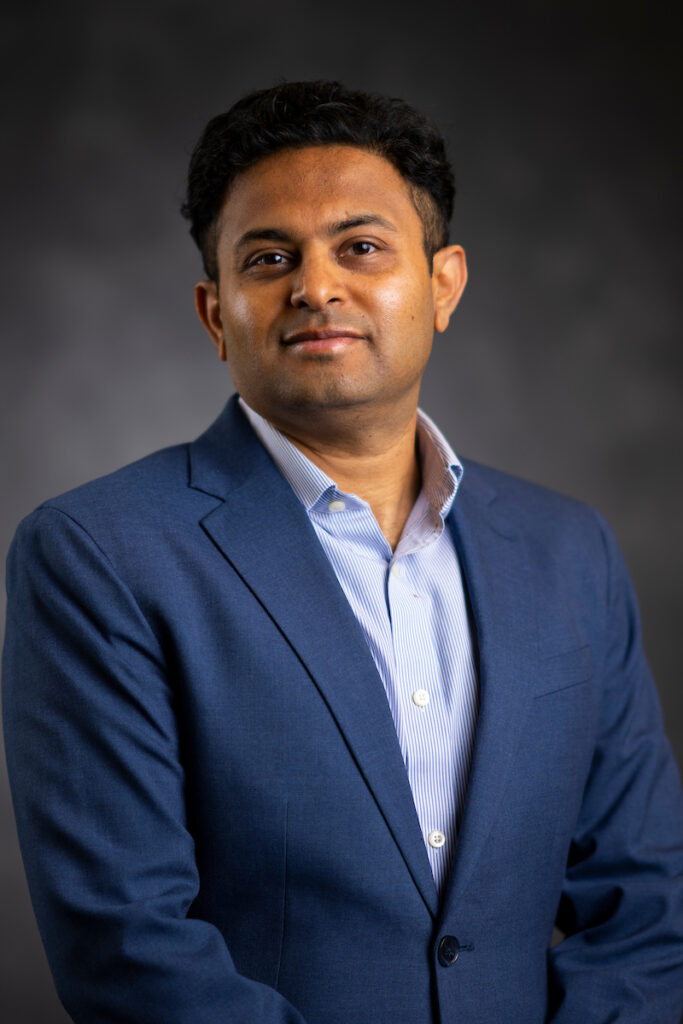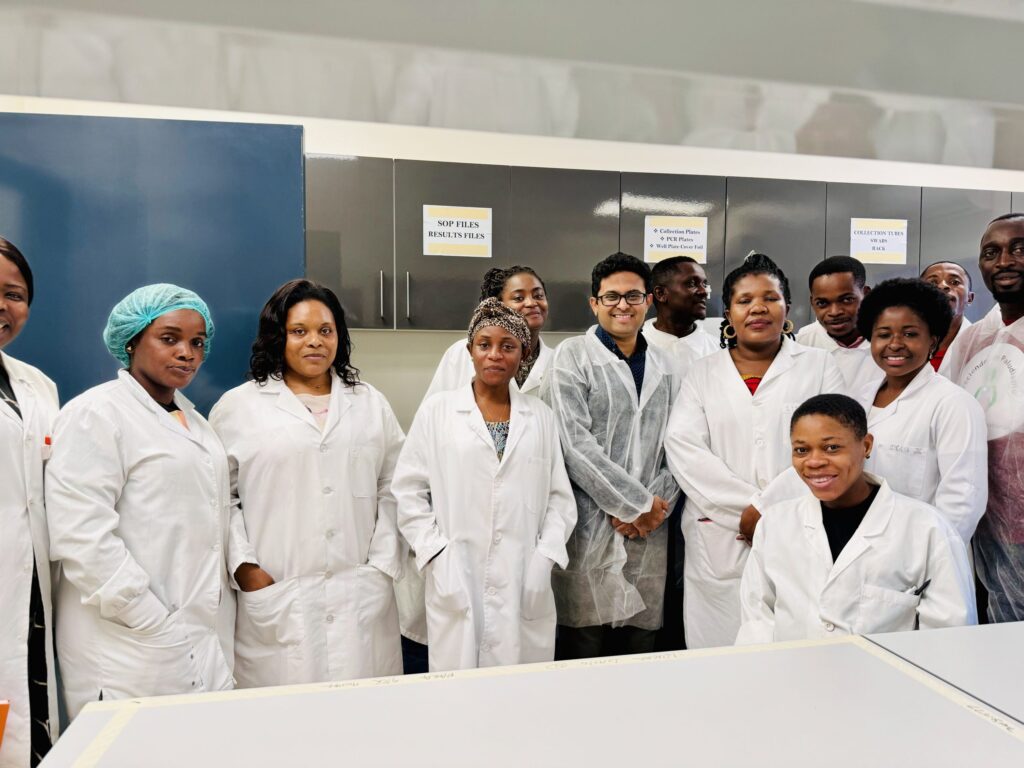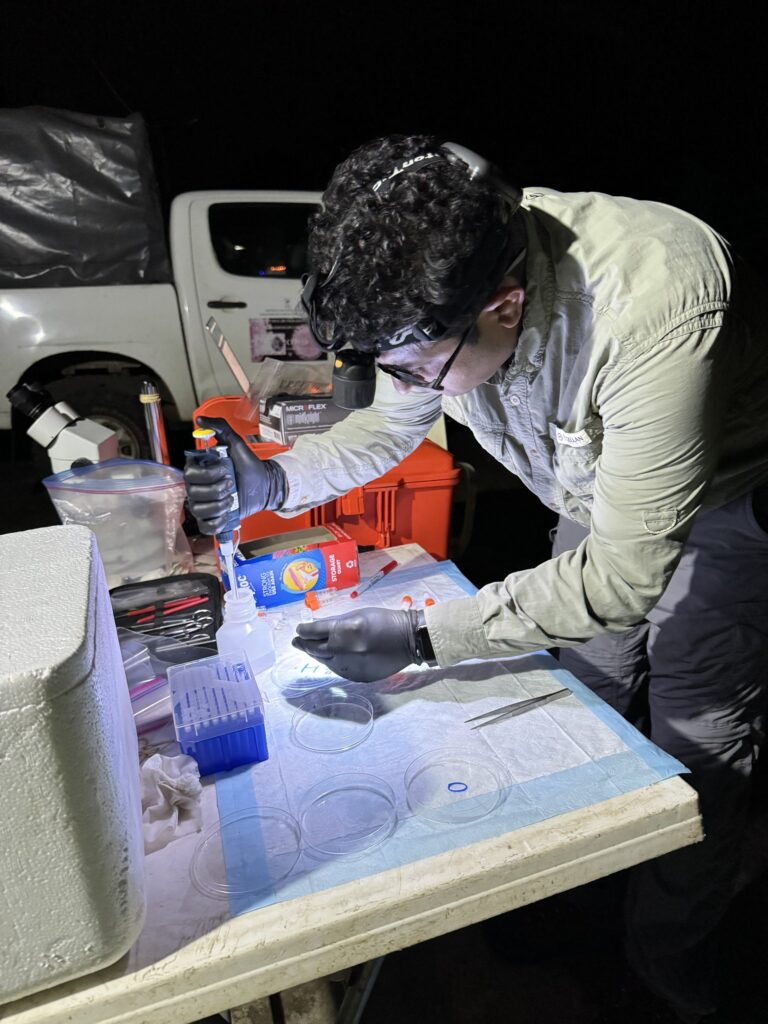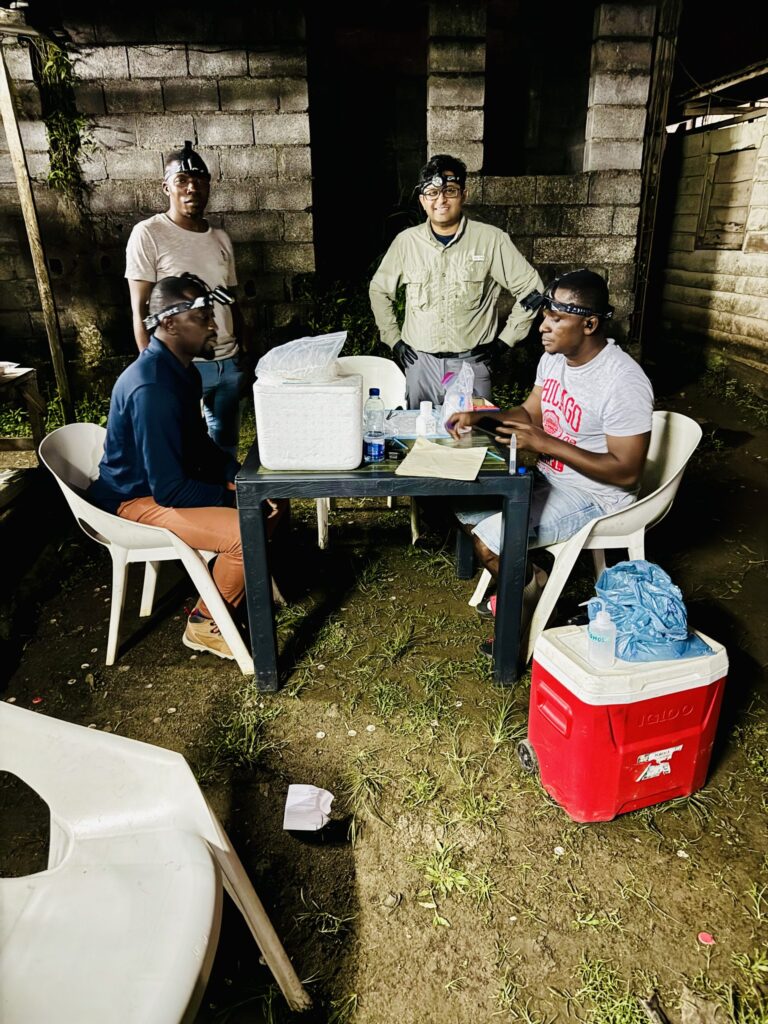Fight to eradicate malaria takes associate professor to Equatorial Guinea
Giri Athrey says science is the best hope for infectious disease solutions at home and abroad
Giri Athrey, Ph.D., understands the significance of a single mosquito bite.

“There is an anecdote that George Washington was struck with malaria at age 17, but managed to recover,” he said. “How different would history be if he had succumbed to malaria?”
While Athrey is an avian geneticist and associate professor in the Texas A&M College of Agriculture and Life Sciences Department of Poultry Science, he also spends a lot of time thinking about malaria and ways to prevent mosquito-borne diseases. Athrey is also an associate professor of quantitative genetics and functional genomics and a member of the graduate faculty in the Department of Entomology.
Malaria elimination project
A passion of Athrey’s is his involvement in the Bioko Island Malaria Elimination Project, BIMEP. The project works to eradicate malaria in Equatorial Guinea.
BIMEP was started in 2004. Athrey began working with them in 2010, and in 2021 assumed the role of technical adviser, making him the main person for molecular entomology and surveillance. Since 2004, the project has led to a 97% overall reduction in the rate of malaria transmission by mosquitoes on Bioko Island.
The work he conducts overseas is based on successes pioneered in the U.S. and elsewhere. Discoveries he makes in Equatorial Guinea are also highly applicable to controlling mosquito-borne vectors at home into the future, Athrey said.
His research related to BIMEP focuses on mosquitoes and the critical role molecular entomology can play in understanding and combating vector-borne diseases and contributing to improving public health outcomes in malaria-affected regions.
“It’s very meaningful work, and it’s very impactful work,” he said. “I spent five years as a postdoctoral associate working on malaria genomics. I was emotionally invested in the work and had put a lot of energy into this research, so I wanted to continue doing it even when I became faculty.”
Work that impacts people
While the Athrey lab works on applying genomics to improve poultry, a global food source, he views his work on malaria as also impacting the same beneficiaries – people. There is a significant overlap in the lab and computational methods used between these fields. And there are often lessons and serendipitous insights when working on two entirely different models.
“In our lab we are interested in using crossing experiments coupled with next-generation sequencing approaches to unravel the genetic basis of complex traits,” he said.
The lab characterizes sequence variation in genes and regulatory elements underlying traits. This work has great importance in a variety of contexts including understanding disease resistance or host-seeking behaviors in disease vectors.
The research is also applicable to many countries dealing with mosquito-transmitted diseases.

Malaria and other mosquito-borne diseases impact the world
Mosquito-borne diseases affect people worldwide — including in Texas and across the U.S., Athrey said. Infected people and animals can also infect non-infected mosquitoes, which in turn infect other people and animals.
West Nile virus is the most prominent arthropod-borne or arbovirus and is the leading cause of mosquito-borne disease in the U.S. West Nile can infect not just humans but birds, horses and other animals.
Other mosquito-borne viral illnesses/diseases seen in Texas include: St. Louis encephalitis, Eastern equine encephalitis, Western equine encephalitis, California encephalitis, dengue fever, Zika and Chikungunya.
Besides health impacts, including potential death and long-term health issues, these mosquito-borne diseases can have tremendous economic impacts.
A calling

Athrey feels a personal and professional calling to help with global issues affecting mankind.
Growing up in India, he was familiar with the impact of food insecurity and infectious disease. His work with poultry and malaria answers his need to address both these issues.
The two things people need for building a foundation in life are food and health, he said. That led him to ask himself what he could do to help address those issues.
“For me, it was science,” he said. “Science equals solutions.”
Infectious diseases can make what should be a normal life into a terrible life or cut it short altogether, he said.
“If you read some of the historical accounts of some African regions, there’s sicknesses like river blindness,” Athrey said. “That is terrifying to imagine that disease existed. There would be entire villages of blind people from infectious disease.”
Malaria field work
Athrey has made several trips to the African nation since 2020.
“I just go into the field mentally prepared because we have to get the maximum out of the amount of time we’re there,” Athrey said of his eight-to-10-day trips to Equatorial Guinea, the last one in November. On that trip, he carried out a week-long training program at the national lab in Baney, but also used the opportunity to perform field collections for continuing genomics studies.
There is a limited window each evening to gather female Anopheles mosquitoes — the only mosquito species that spreads malaria.
“So, we would carry out a training and capacity building program in the day, and from 6:30 p.m. to midnight collect samples,” he said.
It can be exhausting work with little sleep, but Athrey said he looks forward to it.
And as much as Athrey values his time in Equatorial Guinea, he is always eager to return home to be with his family, which includes a middle-schooler.
In the lab

Once the samples are back in the U.S. at Texas A&M for the diagnostic work, lab tech Mark Mattine works on them.
“These samples are invaluable for our research, offering insights that could lead to breakthroughs in understanding mosquito behavior and malaria transmission dynamics,” Athrey explained.
The data generated by Athrey’s lab is mission-critical because it is used to determine how to continue the mosquito control programs, he said.
“Because we’re always on a deadline when it gets here, Mark has to manage his time carefully to keep it churning,” Athrey said. “He works really hard and is an important contributor to what we’re able to do.”
“The capability to do some of the testing and research we’re doing hasn’t previously existed in Equatorial Guinea,” he said. “But things are beginning to change with the opening of the state-of-the-art Baney Laboratory and the training program that has been created to start preparing scientists to do some of the work there.”
Athrey plans to return in late summer to see how the process is going.
“BIMEP is a real success story because it’s one of the best run programs in Africa, and it’s run by competent and good people,” Athrey said. “It’s a privilege to work with all the expertise that comes there, including people from the University of Washington and the London School of Tropical Medicine and Hygiene.
“It’s very fulfilling work, and it is making a difference for people there,” he said. “I just feel fortunate that there is a chance to improve people’s lives by doing this kind of work.”





